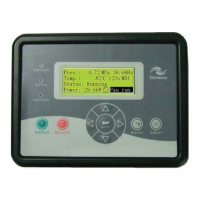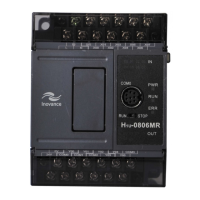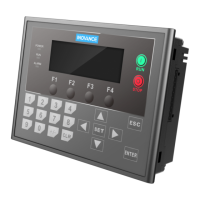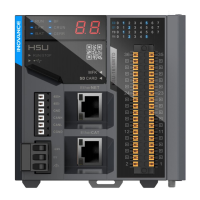476
7
7 Motion Control7.6 List of Motion Control Instructions Supported by MC Subprograms
7.6 List of Motion Control Instructions Supported by MC Subprograms
The following table lists instructions supported by MC subprograms.
Motion Control
Instructions
“DRV: High-speed positioning”
“LIN and INTR: Linear interpolation”
“CW: Clockwise arc interpolation; CCW: Counterclockwise arc
interpolation”
“TIM: Delay waiting”
“MCALL: Motion control subprogram calling”
“MRET: Motion control subprogram return”
“ABST: Absolute position modal; INCT: Relative position modal”
“XYP, YZP, and ZXP: Setting a modal for the current plane”
“SETT: Setting the current position”
“SETR: Setting the electrical origin”
“DRVZ: Mechanical zero return”
“DRVR: Electrical zero return”
“SINTR: Single-speed interrupt positioning; DINTR: Double-
speed interrupt positioning”
“MOVC: Linear displacement compensation”
“CNTC: Arc center compensation”
“RADC: Arc radius compensation”
“CANC: Motion compensation cancellation”
Other
Instructions
“MSET and MRST: Setting and resetting the bit element M”
“MMOV: Value assignment; MADD, MSUB, MMUL, MDIV:
Addition, subtraction, multiplication, and division”
7.7 Format and Use of MC Subprograms
① Motion control instructions
② Type of the function word. The combination of ②, ③, and ④ indicates one parameter which can be
omitted.
③ Type of the element, which can be omitted to indicate a oating-point number. Omission using a
specic instruction indicates an integer.
④ Serial number of a element or value of an immediate operand.
Motion control subprograms can be used to perform different actions, but cannot be used to control logic
contacts. In MC subprograms, motion control instructions can be entered directly by using the bus. Only
one instruction can be entered in each row, and is directly connected to the bus.
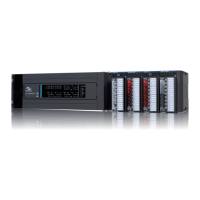
